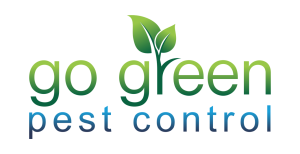Is Pest Control a dying business?
Although you might think that pest control companies perform one main function, to control and or eliminate pests. The pest control industry now appears to be even more cardinal, indispensable in safeguarding public health, agricultural productivity, and property from the impacts of pests in a changing world, particularly in the context of climate change:
-
Increased Pest Activity: Warmer temperatures can create more favorable conditions for the breeding and proliferation of pests such as insects, rodents, and other vermin. As a result, there may be a surge in pest populations, leading to greater demand for pest control services.
-
Shift in Pest Behavior: Climate change can alter the distribution and behavior of pests. Some species may expand their ranges into new areas previously unsuitable for them, while others may become more active or aggressive. Pest control companies will need to adapt their strategies to address these changing dynamics.
-
Ecosystem Disruptions: Climate change can disrupt ecosystems and natural balances, potentially leading to outbreaks of certain pests or the decline of natural predators that keep pest populations in check. This imbalance may require human intervention through pest control measures to prevent damage to crops, structures, and public health.
-
Resilient Pests: Some pests may become more resilient to traditional control methods due to warmer temperatures and changing environmental conditions. This resilience may necessitate the development of new pest management techniques and technologies, which pest control companies can provide.
-
Urbanization and Globalization: As urban areas expand and global trade increases, there is a higher risk of introducing invasive species and pests from one region to another. Pest control companies play a crucial role in monitoring and managing these threats to prevent them from establishing themselves and causing harm.
-
Health Concerns: Certain pests can pose significant health risks to humans by spreading diseases or triggering allergic reactions. With climate change potentially exacerbating these risks through factors like increased humidity or altered habitats, the need for effective pest control becomes even more urgent.
In summary, the combination of environmental changes driven by climate change and ongoing human activities ensures that pests will continue to pose challenges that require professional intervention.
https://www.linkedin.com/pulse/pest-control-dying-business-randy-bilesky-gqwec
